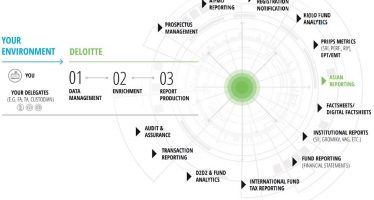The Promise and Pressure of the UK’s AI Aspirations
With world-class universities, a vibrant startup ecosystem and renewed strategic investment, the United Kingdom has the intellectual capital and policy ambition to stake a serious claim in the global artificial intelligence race. Yet despite the bold rhetoric, its leadership aspirations are under increasing strain from intensifying global competition, strategic underinvestment and a widening execution gap at home.
Strong Foundations, Dulled Competitive Edge
Let’s be clear – the UK isn’t languishing at the back of the AI pack. With institutions like Cambridge, Imperial, and DeepMind continuing to set global benchmarks for academic and commercial AI innovation, the UK is far from short of brainpower, innovation or drive to succeed. Indeed, government figures from 2023 revealed a thriving ecosystem of more than 3,000 AI companies employing over 60,000 people, generating around £10 billion annually.

Since then, momentum has grown. The UK government launched its AI Opportunities Action Plan in early 2025, pledging to accelerate innovation through AI Growth Zones, planning reform, and faster grid connections for data centres. Meanwhile, private investments are flooding in; Google Cloud, for instance, has expanded its AI offerings and training initiatives in the UK, and Oracle recently committed £5 billion over five years to advance cloud-based AI services.
Further data from R&D tax credit specialists Source Advisors gives a clearer picture of where the country’s strengths lie – in secure communications, image processing and motion technologies – with major contributions from firms like NChain and Sony Interactive Entertainment pushing the envelope.
Still, the UK’s global impact lags. It ranks eighth for AI patents, and while this sounds impressive, it translates to a holding of just 1.39% of global filings – overshadowed by China’s 61% and the US’s 20%. These figures weave a familiar tapestry of problems: an impressive intellectual pipeline, but insufficient translation into protected, monetisable innovation at scale.
The Talent Crunch
Demand for AI talent in the UK is increasing at pace; A 2025 study from Oxford University tracking over 10 million job postings revealed a 21% rise in AI-specific vacancies between 2018 and 2024. Notably, the trend shows a paradigm shift in hiring interest, from formal academic credentials to demonstrable, practical expertise.
But the hiring gap is stark. IT Pro reports that over 80% of UK tech leaders cite difficulty in filling AI roles, especially in deep learning and large language model development. Despite its world-class universities, the UK struggles to retain talent, as startups often can’t match the salaries and career prospects of US or Chinese tech giants.
This shortage isn’t confined to technical hires either. A growing number of firms also report gaps in adjacent skills such as AI governance, ethics, and risk analysis, indicating that demand now extends beyond engineers to those who can shape safe and responsible deployment.
To combat this issue, the government has committed over £2.3 billion to AI initiatives over the past decade, including £117 million for AI PhDs and postdoctoral funding, but the issue is systemic. Retention strategies, visa reform, and clearer pathways from study to employment are essential if the UK hopes to avoid becoming a training ground for overseas talent.
Strong Research Under Growing Risk
Britain’s open research culture has long been a highly-respected strength of the nation’s efforts, but it is increasingly a liability in the age of AI. As early-stage models and training datasets become strategic assets, they are increasingly targeted by foreign state-backed actors.
In response, the government launched the AI Safety Institute in November 2023, positioning the UK as a global leader in responsible AI oversight. The institute’s remit includes testing advanced models for risk, establishing safety benchmarks, and informing regulation.
This move followed the UK’s AI Safety Summit at Bletchley Park, which convened global stakeholders to coordinate on frontier AI risks. However, while policy ambition is commendable, implementation remains patchy. Startups, especially, lack the cyber resilience of larger firms, and even world-leading researchers face unclear guidance on what should or should not be shared publicly.
Why This Matters for Business
Without a cohesive ecosystem, from talent to infrastructure to IP protection, UK businesses risk losing their competitive edge. Too often, ideas born here are seemingly scaled and monetised elsewhere.
In 2023, the US alone invested over $67 billion into AI, with £25 billion going toward generative AI. By contrast, the UK’s £900 million commitment to the Isambard-AI supercomputer is a start—but not nearly at the scale needed to support a sovereign AI stack. As long as British firms rely on overseas cloud infrastructure and foundational models, they remain implementers of technologies shaped elsewhere; Highly capable, but ultimately dependent on foreign innovation cycles.
Where the UK Needs to Act
This isn’t a question of lacking ambition. The UK has a clear vision and ambitions for its AI future, but the challenge lies in converting that vision into tangible, lasting results – and that may mean revisiting some fundamentals.
It starts with the talent pipeline; ongoing support for PhD and postdoctoral researchers could prove a key component of success. These early-career roles often form the bedrock of long-term innovation,and with the right backing, both financial and professional, they might just form the foundation of a stronger domestic knowledge base.
A firm talent pipeline should be followed with robust retention. The UK continues to attract some of the brightest minds from around the world, largely thanks to its universities, but keeping them seems to be the harder part. More fluid, accessible routes from education into meaningful careers, whether through visa reform or clearer post-study work options, could help turn academic success into economic contribution.
Infrastructure is another area that could be developed. At the moment, heavy reliance on overseas compute and hosting isn’t just an inconvenience; it also introduces risk. Building sovereign capabilities, whether in compute power or foundational model development, could strengthen the UK’s position, not just technically, but strategically as well.
Commercialisation, too, needs attention. The ideas are there, but too many promising projects from universities and startups face the threat of fizzling out before they scale. Helping founders navigate IP rules, secure funding, and build with confidence could unlock a wave of innovation.
Intellectual property remains a grey area. Recent government proposals to ease copyright restrictions for AI model training, allowing firms to use protected content without explicit permission, have drawn concern from publishers and the creative industries. As the UK looks to lead in ethical AI, these tensions will need careful resolution to avoid undermining long-term trust and collaboration.
Finally, security. As the stakes rise, so does the need to protect research across the board. Embedding security awareness into both academic and business cultures could help safeguard the UK’s ability to innovate with confidence.
On their own, these efforts may only go so far, but collectively, they could lay the groundwork for genuine, lasting leadership.
You may have an interest in also reading…
Deloitte: Changes on the Horizon for Europe’s Alternative Investment Fund Market
The European Commission’s ongoing efforts to establish the Capital Market Union have reached the alternative investment manager’s market in Europe.
Sustainable Stock Exchanges: The Relevance of Green Indices
At the fourth Global Dialogue of Sustainable Stock Exchange (SSE) Initiative, last Tuesday in Geneva, Nasdaq OMX vice-chairman Meyer “Sandy”
Global Investing: Italy or Singapore?
Many European countries have declining population growth and onerous business regulations. This creates a headwind against the region’s share prices.
















































































